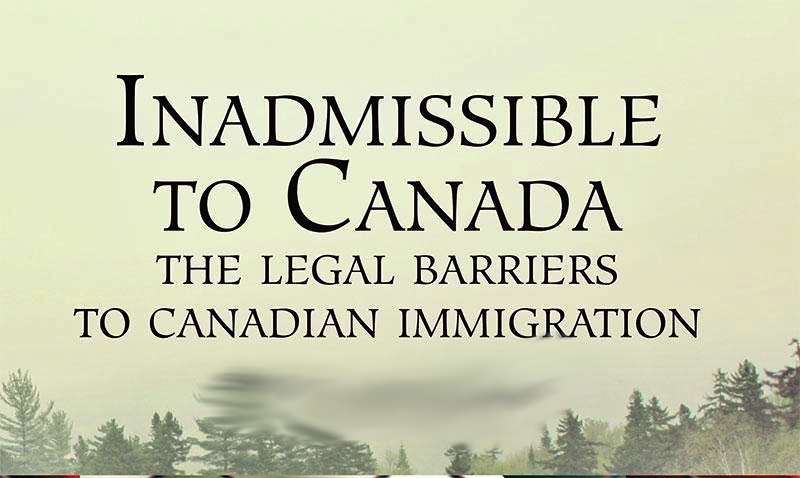A Canadian immigration officer will decide if you can enter Canada when you apply for a visa or an Electronic Travel Authorization (eTA), or when you arrive at a port of entry.
If you’re found inadmissible, you’ll be denied a visa or an Electronic Travel Authorization (eTA), refused entry to, or removed from Canada.
You could be found inadmissible for a number of reasons, such as:
- security reasons, including
- espionage
- subversion (attempts to overthrow a government, etc.)
- violence or terrorism
- membership in an organization involved in any of these
- human or international rights violations, including
- war crimes
- crimes against humanity
- being a senior official in a government engaged in gross human rights violations or subject to international sanctions
- committing a crime, including driving while under the influence of drugs or alcohol
- organized crime, including membership in an organization that takes part in organized criminal activity, people smuggling or money laundering
- medical reasons – this includes medical conditions that:
- endanger public health
- endanger public safety or
- causes excessive demand on health or social services (some applicants are exempt)
- financial reasons – if you’re unable or unwilling to support yourself and your family members
- misrepresentation, which includes providing false information or withholding information directly related to decisions made under the Immigration and Refugee Protection Act (IRPA)
- failure to comply with any provision of IRPA. Examples of failure to comply with IRPA include:
-
- temporary residents who don’t respect the conditions of their stay—for example, they stay longer than allowed, or work or study without the proper permits
- permanent residents who haven’t lived in Canada for the required amount of time
- people who have previously been deported and try to enter Canada without written authorization (In some cases you may need an Authorization to return to Canada (ARC) in order to be admitted to Canada.)
- having an inadmissible family member.
- having a Removal Order
If you receive a Removal Order you cannot legally remain in Canada and must leave the country. Depending on your situation, your removal order may be effective immediately, or after a negative decision if you had made an appeal.
If you have questions about your Removal Order you are encouraged to call 1-833-995-0002, Monday to Friday between 8:00 am to 4:00 pm AST, to speak to an officer who can answer your case-specific questions.
There are three types of Removal Orders issued by Immigration, Refugees and Citizenship Canada (IRCC) or the Canada Border Services Agency (CBSA). These are Departure Orders, Exclusion Orders and Deportation Orders. The form number on the Removal Order indicates what type of order you received.
-
- With a Departure Order, you must leave Canada within 30 days after the order takes effect.
- You must also confirm your departure with the CBSA at your port of exit. If you leave Canada and follow these procedures, you may return to Canada in the future provided you meet the entry requirements at that time.
- If you leave Canada after 30 days or do not confirm your departure with the CBSA, your Departure Order will automatically become a Deportation Order. In order to return to Canada in the future, you must obtain an Authorization to Return to Canada (ARC).
- With an Exclusion Order, you cannot return to Canada for one year.
- If you do wish to return before the 12 months have passed, you must apply for an ARC.
- If an exclusion order has been issued for misrepresentation, you cannot return to Canada for five years.
- If the CBSA paid for your removal from Canada, you must repay that cost.
- With a Deportation Order, you are permanently barred from returning to Canada and cannot return unless you apply for an ARC.
- If the CBSA paid for your removal from Canada, you must also repay that cost before you are eligible to return.

